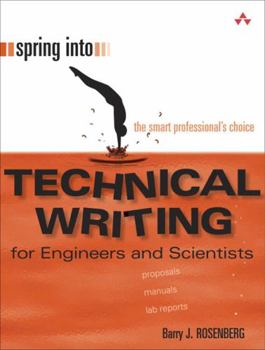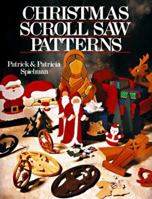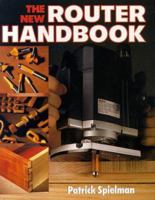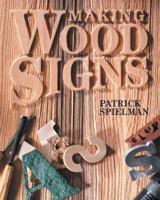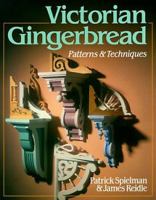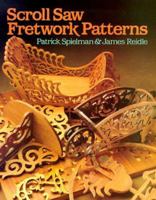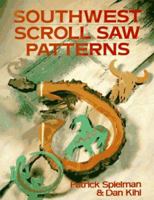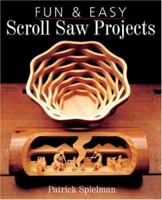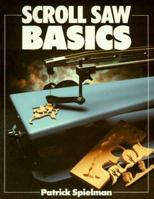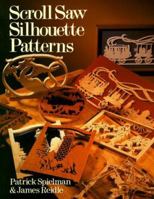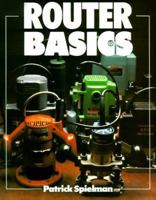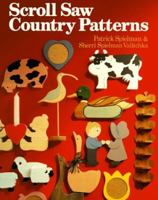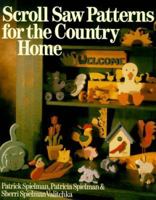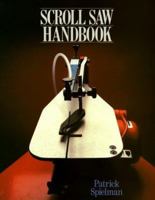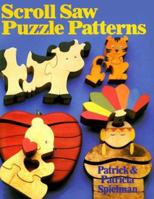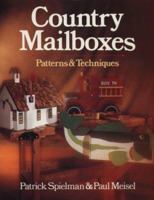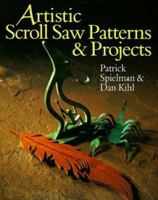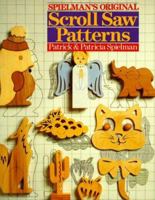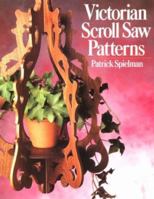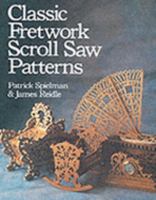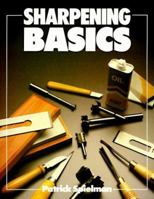Spring Into Technical Writing for Engineers and Scientists (Spring Into... Series)
The fastest way for professionals to master technical writing
You're a technical professional, perhaps a programmer, engineer, or scientist. You are not a professional writer, but writing is part of your job (specs, manuals, proposals, lab reports, technical presentations, Web content, data sheets, and so on).
Welcome. This book is for you. It's all you need to clearly communicate technical ideas to any audience--technical or nontechnical--and motivate them to act.
Barry J. Rosenberg organizes every facet of effective technical writing into more than 175 short, concise, fast-paced tutorials. You'll find loads of examples (what to do and what not to do) plus start-to-finish instructions for writing exactly the kinds of documents you need to create.
Need specific solutions? This book's bite-size, visual, high-efficiency format delivers them instantly. Dig in, get started, and get results
Make all your documents and presentations clearer, more concise, and more compelling Understand your audience, and target your content appropriately Learn how to write for an international audience Use active voice to communicate with confidence and authority Produce effective lists, tables, and graphics Create useful examples Write effective manuals and release notes Implement solid technical Web sites Develop winning research, business, and book proposals Create and present compelling PowerPoint presentations Write e-mails that don't ignite flame wars Learn how to integrate documentation development into best engineering practicesDownloadable examples are available on the Web.
Customer Reviews
Rated 5 starstechnical writing
The product was well packaged and delivered on time. Good Job Shreyans Shah
0Report
Rated 5 starsGreat Book!!
There's an interesting story to how I got this book, "Spring Into Technical Writing". I subscribe to a HTML email list that I don't read that often. However, one day, I saw a mention of "Technical Writing" in the subject line and browsed through the email. In the email was a link to a review of "Spring Into Technical Writing". After reading the review, I was immediately hooked but did not purchase the book immediately...
0Report
Rated 5 starsShould be on every techie's bookshelf...
I wish I had this book available to me about three years sooner... Spring Into Technical Writing for Engineers and Scientists by Barry J. Rosenberg. I'd be much further ahead in my writing skills, that's for sure... Contents: Section 1 - Planning to Write: The Quest; Audience; Documentation Plans Section 2 - Writing - General Principles: Words; Sentences; Paragraphs and Sections; Lists; Tables; Graphics; Professional...
0Report
Rated 5 starsGreat resource - how to do it right from the beginning
Technical writing is it's own special world. Using standard writing techniques almost ensures that readers will have a difficult time understanding technical material. This book comes to the rescue of the technical writer by detailing the proper techniques and the things you need to take into consideration when writing. For example, nobody would argue that a technical book written for people with a doctorate degree should...
0Report
Rated 5 starsWhat an amazing book!
This book is a "must-read" for anyone engaged in the art of technical writing --- even for an old pro like me. Like any good book on writing, Technical Writing begins with a discussion of writing itself. Rosenberg makes it clear that you need to write for a particular audience---and with a particular message. He discusses the difference between writing documentation, writing technical marketing literature, and writing speeches...
0Report










